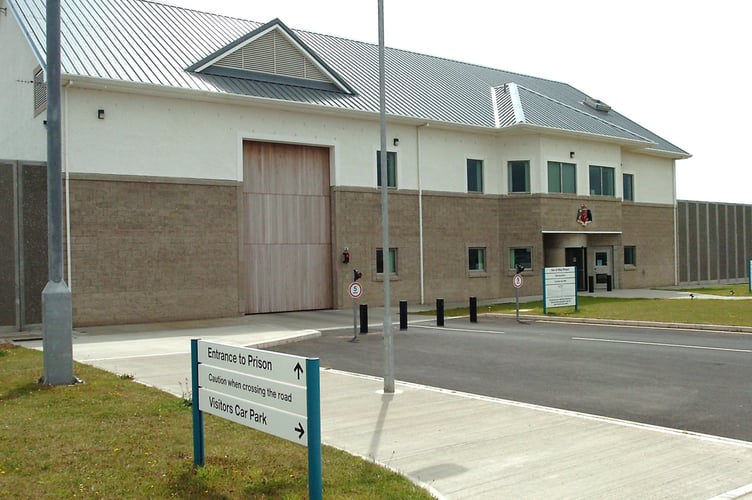The rate of reoffending among prisoners has reached its highest level for two years.
Figures released by the Department of Home Affairs under a Freedom of Information request show reoffending rates over the past decade, including how many prisoners had previously committed violent, sexual or drugs offences. The department said the data helps it assess the effectiveness of rehabilitation and resettlement programmes.
In 2016, 13.92% of those jailed were reconvicted within 12 months of release or the end of supervision. Of 194 people convicted that year, 28 were reconvicted, including 16 for violent, sexual or drugs offences.
The percentage fell to 11.71% in 2017, when 205 people were convicted and 24 reconvicted. Seventeen had committed violent, sexual or drugs offences.
In 2018, the rate rose slightly to 12.35%, with 23 of 170 prisoners reconvicted within a year, including 11 for violent, sexual or drugs offences.
The following year saw a sharp increase to 17.57%, with 39 of 222 prisoners reconvicted, 20 of whom had committed violent, sexual or drugs offences.
The figure rose again in 2020 to 20.27%, with 30 of 148 prisoners reconvicted, including 14 for violent, sexual or drugs offences. The department noted that the pandemic may have affected these figures.
In 2021, the rate fell to 15.05%, with 14 of 93 prisoners reconvicted within a year. Three had committed violent, sexual or drugs offences.
A sharp drop followed in 2022, when just two of 41 prisoners were reconvicted within 12 months, a rate of 4.88%. Both had committed violent, sexual or drugs offences.
From 2023 onwards, the figures were reported quarterly and measured over an 18-month period rather than 12 months. By the end of 2023, the reconviction rate had risen to 8.16%, with eight of 98 prisoners reconvicted, including two for violent, sexual or drugs offences.
The rate dropped again in 2024 to 6.8%, with seven of 103 prisoners reconvicted, four of whom had committed violent, sexual or drugs offences.
The most recent figures, covering the year to June 30, 2025, show a reconviction rate of 8.33%, with eight of 96 prisoners reconvicted, including five for violent, sexual or drugs offences.
On its website, the Department of Home Affairs says it works to reduce reoffending by helping prisoners resettle into the community and build sustainable lives after release.
It states: ‘The resettlement team within the prison focuses its efforts on building links with outside agencies, inviting them into the prison and encouraging them to be actively involved.
‘Custody Plans form the mainstay of this process and plan for a prisoner’s release by ensuring that assistance is provided in finding employment and securing accommodation for those that need it.
‘Everything contained in the Custody Plan, throughout the prisoner’s sentence, should be geared towards improving the chances of living a crime-free life on release.’
What do you think about this story? Have your say by emailing [email protected] with your views for possible publication. Include your name, address, and phone number for verification. Anonymity requests will be respected.




.jpeg?width=209&height=140&crop=209:145,smart&quality=75)